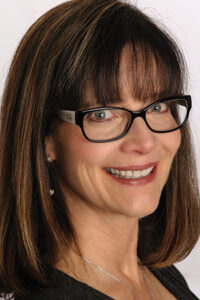
Home » Census 2020: 10 questions to influence the next 10 years
Census 2020: 10 questions to influence the next 10 years

January 14, 2020
By LoAnn Ayers
Census 2020 is unlike any of the 23 that came before it. For the first time, in addition to mail or phone, people will be able to respond online from any device. The U.S. Constitution requires this once-a-decade snapshot of how many people live in each community. A high response rate means more federal funds for local support.

Since
our counties were undercounted in 2010 by nearly 30 percent, our region did not
get its fair share of state and local funds for the last 10 years.
Local
community leaders formed the Benton Franklin Complete Count Committee. Their
goal is that everyone gets counted. United Way of Benton & Franklin
Counties was recently awarded a grant and a state contract to support the
strategies to increase our region’s response rate.
The
census is just 10 questions and takes an average of 10 minutes to complete. To
ensure a complete count, some concerns must first be addressed and understood.
How safe is it?
Federal
law protects all census responses. Your information is confidential and will
never be accessed by law enforcement or immigration enforcement agencies, the
IRS, or any other agency or person. It
also cannot be used to determine eligibility for government benefits.
The
2020 census does not ask for Social Security numbers or citizenship. In fact,
you can skip questions that make you uncomfortable—like ethnicity or gender—and
still be counted.
How does the census impact my family and community?
For
every person not counted, our community loses $2,300 in federal funds alone,
each year for the next 10 years. We also won’t get our fair share of state
funds to support the needs of our growing communities.
State
and federal governments use census data to determine how much our community
receives for public transit, job training, school lunches, special education,
foster care, college student tuition support, Medicare Part B, food and housing
for low-income families, and more.
Businesses
use it to decide where to build or expand, which creates jobs and economic
activity. Local government officials use it to ensure public safety and plan
for new schools, hospital expansion and utilities.
The
census also makes sure that our region is fairly represented. Results determine
how many seats each state gets in the House of Representatives and designates
boundaries of the congressional and state legislative districts, based on
population shifts.
How do I identify a scam?
Being
informed is the best way to spot a scam. Here’s what you need to know:
The
U.S. Census Bureau will never ask for your Social Security number, money or
anything on behalf of a political party. It won’t ask for bank or credit card
account numbers, your mother’s maiden name, or threaten you with arrest if you
do not comply. If a document or person asks for any of this information, even
if it looks official, don’t respond!
Census
Bureau employees will never ask to come into your home. All Census Bureau
employees have a badge that includes their name, photo, U.S. Department of
Commerce watermark and an expiration date. If a person refuses to show this
badge, close the door.
The
Census Bureau will neverinitiate contact with you though email. They
may send you a follow-up email, for example, if your written census response is
hard to read. Official emails and links always will have a census.gov domain
and will be encrypted. Look for “https://” and a lock symbol in the browser
window. If you receive an email claiming to be from the Census Bureau that ends
with “.com,” delete it.
How can I complete the census?
Starting
April 1, you can respond online in English or 12 additional languages,
including American Sign Language. Public access computers, such as at our local
libraries, also will be available for use.
By
mid-April, a paper questionnaire will be mailed to every household which hasn’t
already responded. In mid-May, census takers will be available in-person to
help and will begin
visiting homes that haven’t responded to make sure everyone is counted.
How can I help increase our count?
Census
2020 is a big deal and our community needs your help.
First,
commit to answering the census for your household.
Second,
support the Benton Franklin Complete Count Committee. As a trustworthy source
of information to your employees and customers, you can help to spread the
word. Census education materials are available for businesses, schools, media
and other organizations. Request materials, schedule a quick presentation and
even download resources at bfcensus2020.org.
To
become a community partner, email BFCountyCensus@uwbfco.org.
Take
the pledge now to take 10 minutes out of your day to answer the census to help
our community for the next 10 years.
LoAnn Ayers is president and chief
executive officer of United Way of Benton & Franklin Counties. She is a “double-Coug,” having earned
her Master of Business Administration and doctorate from Washington State
University. At the local United Way, she ensures local
resources get maximum benefit to improve lives in our community. She is also
one of the champions for our local census organizing committee.
Local News
KEYWORDS january 2020




